#Dietary Supplements Market Report
Text
Dietary Supplements Industry Overview, Trends, Growth Drivers, and Opportunities
The global dietary supplements market is projected to grow from USD 167.5 billion in 2023 to USD 239.4 billion in 2028, at a CAGR of 7.4% during the forecast period. The factors driving the growth are the increasing elderly population, the shift from pharmaceuticals towards nutraceuticals, amino acids, and protein supplements due to the focus on preventive healthcare, and the growing personalized nutrition, which is supporting the dietary supplement industry. Consumers are shifting focus toward self-directed care driven by the growing personal health, weight management, and well-being trend. The personal care markets have changed drastically in recent years, from consumers adopting weight management and protein supplements to help manage lifestyle disorders. In most of the region, it is seen that people do not take an adequate amount of protein, and because of this, the need for amino acids and protein supplements is increasing. Additionally, due to wrong eating habits and improper lifestyles, a vast majority of consumers are opting for weight management supplements to curb obesity and overweight issues.
Dietary Supplements Market Share
Key players in this market include Nestle (Switzerland), Abbott (US), Amway Corp (US), Pfizer Inc. (US), ADM (US), International Flavors Fragrance (US), Otsuka Holdings Co., Ltd (Japan), Glanbia PLC (Ireland), GSK PLC. (UK), Bayer AG (Germany), Herbalife International of America, Inc. (US), Nature's Sunshine Products, Inc (US), Bionova (Canada), ArkoPharma (France), American Health (US), Pure Encapsulation (US), HH Group (Hong Kong), Nu Skin (US), Power Gummies (India), Biomedical Research Laboratories (US), HealthKart (India), NutriScience Corporation (US), Nature's Essentials (US), and Life Extension (US).
Dietary Supplements Market Trends
Growing Consumer Awareness and Focus on Health: There has been an increasing awareness among consumers about the importance of maintaining good health and preventing health issues. This awareness has translated into a growing demand for dietary supplements as people seek convenient ways to complement their diets and address specific health concerns.
Preventive Healthcare and Wellness: Many consumers are shifting their focus from treating illnesses to preventing them. This has led to a rise in the consumption of dietary supplements that claim to support overall wellness, boost immunity, and promote longevity.
Plant-Based and Natural Ingredients: There has been a noticeable trend towards plant-based and natural ingredients in dietary supplements. Consumers are seeking products that align with their preferences for clean labels, sustainability, and a perceived connection to nature.
Personalization and Customization: The one-size-fits-all approach is giving way to personalized and customized solutions. Companies are increasingly offering tailored supplements based on individual health needs, genetic factors, and lifestyle choices.
E-commerce and Direct-to-Consumer Sales: The rise of e-commerce has significantly impacted the distribution of dietary supplements. Many consumers prefer the convenience of online shopping, and this trend is expected to continue. Additionally, some brands have adopted direct-to-consumer models, bypassing traditional retail channels.The sports nutrition function segment is projected to grow at the highest rate during the forecast period.
Many sports nutrition supplements available today include multivitamins, branched-chain amino acids (leucine), omega-3 fatty acids, glucosamine, glutamine, beta-alanine, beetroot, and green tea extract, each of which provides different performance benefits. In general, all humans require an adequate amount of macro and micronutrients. However, due to extreme exertion athletes need to monitor their food intake. Sports nutrition supplements provide them with all the required nutrients, which is why this category is projected to grow fastly in the dietary supplements market.
Download PDF Brochure:
https://www.marketsandmarkets.com/pdfdownloadNew.asp?id=973
North America holds the highest market share during the forecast period.
North American nutrition and supplements hold the largest market share and are expected to expand further. The North American population has become more aware of health and has adopted dietary supplements as a part of their daily diet regime to have overall health and weight benefits. The population in the region is more prone to lifestyle disorders like diabetes, obesity, and high blood pressure, due to improper diet. The region is more inclined towards consuming junk and processed food that are devoid of nutrition, which gives rise to health disorders. Additionally, the trend of consuming vegan and less processed food is leading to the increased intake of dietary supplements to tackle nutritional deficiencies. Additionally, South Africa seems to be a potential market in terms of production and consumption of dietary supplements. The general trend of malnourishment and other nutritional deficiencies is seen in the population in the South African region. Together, it drives the overall dietary supplements market.
#Dietary Supplements Market#Dietary Supplements Market Size#Dietary Supplements Market Share#Dietary Supplements Market Growth#Dietary Supplements Market Trends#Dietary Supplements Market Forecast#Dietary Supplements Market Analysis#Dietary Supplements Market Report#Dietary Supplements Market Scope#Dietary Supplements Market Overview#Dietary Supplements Market Outlook#Dietary Supplements Market Drivers#Dietary Supplements Industry
0 notes
Text
The Best Multivitamin Ingredients for Immune Protection and Good Health
#Prior to the onset of the Covid-19 crisis#consumers had already grown increasingly mindful of the impact of nutrition on their health. The pandemic has turbo-charged this trend#as protection from infection and illness has rapidly become a year-round concern rather than a seasonal one. As a result#the 2020 global dietary supplements market size of USD 140.3 billion was projected to expand at a compound annual growth rate (CAGR) of 8.6#according to a report by Grand View Research.
0 notes
Text
Booming with Health: Decoding the Nutritional and Dietary Supplements Market

Unveil the nutritional and dietary supplements market, analyzing its size, segmentation, and future outlook. Explore industry competitors, top players, and forecasts driving the booming health supplements market.
#Nutritional and Dietary Supplements Market#Dietary Supplements Market#Nutritional Supplements Market#Health Supplements Market#Vitamins and Dietary Supplement Market#Dietary Supplements Market Analysis#Nutritional Supplements Market Size#Dietary Supplements Industry Competitors#Dietary Supplements Market Future Outlook#Dietary Supplements Market Segmentation#Top Players in Dietary Supplements Market#Nutritional Supplements Market Report#Dietary Supplements Market Forecast#growth of Nutritional Supplements industry
0 notes
Text
Nutraceutical Ingredients Market - Forecast (2023 - 2028)
#nutraceutical ingredients market#nutraceutical ingredients market size#nutraceutical ingredients market share#nutraceutical ingredients market forecast#nutraceutical ingredients market report#dietary supplements#malnutrition#dietary
0 notes
Text
https://sajhi.com/blogs/70535/Dietary-Supplements-in-the-Age-of-Personalized-Nutrition-Market-Report
Dietary Supplements in the Age of Personalized Nutrition Market Report, Growth And Forecast To 2030
The Dietary Supplements in the Age of Personalized Nutrition Market trends is expected to reach USD 21,198.44 Million by 2030 at 6.70% CAGR during the forecast period 2022-2030
0 notes
Text
Global Dietary Supplement Market | Pharmaceuticals Industry
Global Market for Dietary Supplements would witness a CAGR of 8.91% and is predicted to generate a revenue of approximately $306.12 million by 2028.
Read More:
#dietary supplement market#dietary supplement#pharmaceuticals industry#dietary supplement analysis#triton market research#market research reports#market research trends
0 notes
Text
Liquid Dietary Supplements Market 2022 Size, Share, Upcoming Industry Trends, Business Development Analysis, Segmentation and Forecast by 2028
Liquid Dietary Supplements Market 2022 Size, Share, Upcoming Industry Trends, Business Development Analysis, Segmentation and Forecast by 2028
This report studies the Liquid Dietary Supplements Market with many aspects of the industry like the market size, market status, market trends and forecast, the report also provides brief information of the competitors and the specific growth opportunities with key market drivers. Find the complete Liquid Dietary Supplements Market analysis segmented by companies, region, type and applications in…
View On WordPress
#Covid-19 Impact Analysis#Liquid Dietary Supplements#Liquid Dietary Supplements forecast#Liquid Dietary Supplements Industry#Liquid Dietary Supplements Market#Liquid Dietary Supplements price#Liquid Dietary Supplements report#Liquid Dietary Supplements research#Liquid Dietary Supplements share#Liquid Dietary Supplements trends
0 notes
Text
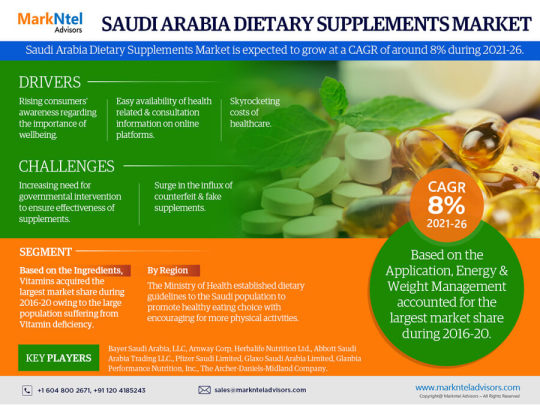
Saudi Arabia Dietary Supplements Market Research Report: Forecast (2021-2026)
#Saudi Arabia Dietary Supplements Market Research Report: Forecast (2021-2026)#Saudi Arabia Dietary Supplements Market#Dietary Supplements#Dietary Supplements Market#Saudi Arabia Dietary Supplements Market analysis#Saudi Arabia Dietary Supplements Market forecast
0 notes
Text
Chrissy Reifschneider had just left rehab to treat her heroin addiction in 2017 when she started taking tianeptine, popularly dubbed “gas station heroin." The 41-year-old from Alabama was struggling with low energy, so a family member who worked at a gas station recommended she try the pills.
Within days, Reifschneider was hooked, and three dark years cruised by. Now four years clean, Reifschneider reflects on the deception that contributed to her tianeptine addiction and the overwhelming shame that followed. It's a trend that addiction medicine experts say shines a sobering light on the ongoing mental health crisis that's driving people to "easy" solutions amid widespread healthcare accessibility issues in the U.S.
“I thought well, I'm not sticking a needle in my arm, so I literally convinced myself that I wasn’t a drug addict until I realized I didn't recognize who I was anymore,” Reifschneider said. “It's crazy to think that these gas station pills just controlled me. I was ashamed because I'd rather people know I was shooting up heroin than actually spending all this time and money on over-the-counter (drugs).”
Tianeptine is prescribed as an antidepressant in some European, Asian and Latin American countries, but it’s not approved for any medical use in the U.S. Still, companies are marketing and selling tianeptine products as dietary supplements typically in pill and powder form, claiming it can improve brain function and treat depression, anxiety, pain and even opioid use disorder.
Tianeptine has been banned in Alabama, Florida, Georgia, Indiana, Kentucky, Michigan, Mississippi, Ohio and Tennessee.
Reifschneider used to take five pills every four hours, which she said gave her enough of a “warm, fuzzy buzz” without making her feel clammy or nauseous, similar to the effects of doing too much heroin, she said. The brand she purchased recommends two capsules daily “or as needed,” and advises against exceeding three capsules in a 24-hour period.
She started to lose her hair and lots of weight; had auditory hallucinations; developed paranoia surrounding electronics, at times using 10 cellphones at once; and began to convince herself that she was “better off dead.” Reifschneider would even chat with gas station employees about how dangerous the pills were: “I was silently crying out for help.”
After several unsuccessful stays in rehab, Reifschneider quit “cold turkey” and entered a withdrawal state for the next six months, which she said felt similar to but lasted longer than her withdrawal from heroin and fentanyl. Today, she continues to “feel like a 15-year-old in my brain,” alluding to her debilitating memory problems. “It’s one of my more shameful things,” she said.
Poison control cases involving tianeptine have increased nationwide, from 11 total cases between 2000 and 2013 to 151 cases in 2020, the FDA says. Many poison control calls often involve severe withdrawal symptoms, such as agitation, vomiting and diarrhea, because people typically consume higher doses than those prescribed in other countries, according to a 2018 CDC report.
Dr. Holly Geyer, an internal medicine physician specializing in addiction medicine with the Mayo Clinic, said fear of withdrawal and the depression that follows can contribute to addiction to a variety of substances.
“These often aren't people who are chasing a high. They're just trying to feel normal, and if there's a drug out there that helps them curb that appetite, they're probably going to take it until it as a solution becomes the problem,” Geyer said. “These people are trapped biologically, mentally and spiritually. It's a horrible situation to be in, and I can tell you tianeptine does not let them out of it.”
Shame and stigma prevail among addiction recovery circles
Since Reifschneider joined social media to share her tianeptine experience, neighbors and friends have confided in her with their own struggles with the supplement. “It was a very dark secret we all kept in our recovery circle because it was so shameful,” she said. “We all felt better about ourselves because we weren’t doing the worst of the worst.”
Aaron Weiner, an addiction psychologist, says that mentality is “completely reasonable” considering the stigma and “traditionalism” that still weighs on drug use in general. “There’s a very intense mental health burden in this country right now,” he said.
Tianeptine is marketed as a supplement, but it’s really an opioid receptor agonist. That means it binds to the same receptors in the brain that heroin, fentanyl and other opioids do, causing similar euphoric and addictive effects by hijacking the body’s dopamine system. So when people use tianeptine amid their recovery journey to cope with withdrawal or other lingering effects, judgment frequently follows.
“In a lot of recovery circles, the goal is complete abstinence from all intoxicating substances,” Weiner said. “In this scenario, some people may assume they’re substituting one drug for another, and say they’re not really sober.”
Similar judgment occurs among those taking FDA-approved medications for opioid use disorder (MOUD), including methadone, buprenorphine and naltrexone — some of which are opioids themselves. Mounting evidence shows that they reduce opioid cravings and withdrawal symptoms, and block their euphoric effects, Weiner said, but don’t make people “high” or cause withdrawal when dosed properly.
Although MOUD use has grown by more than 100% over the last decade, nearly 90% of people living with opioid use disorder are not receiving these medications, according to a 2022 study published in the International Journal of Drug Policy. Experts say stigma is partly to blame.
“One of the greatest problems we have in this country is that of stigma; we label people, then throw them out with their diagnoses,” Geyer said. “So when many of them turn to MOUD, they experience equal amounts of stigma and are led to think that no one could yell at them or be offended if they use supplements like tianeptine that they think are safer.”
"It kills me to know this is still out there"
Reifschneider said she visited a doctor who specializes in addiction medicine two times for help to detox from tianeptine, but neither attempt was successful.
“The doctor had no idea what these pills were, but he wanted to help me because he could see my desperation,” Reifschneider said. “I was terrified to come off of them alone, so I didn’t know what to do.”
She ultimately detoxed herself, but this lack of awareness and access to proper treatment, Geyer said, is what deters people away from evidence-based treatment and attracts them to the illicit market.
Data show that nearly 50% of counties in the U.S., don’t have MOUD medication providers and 32% don’t have any specialty substance abuse treatment programs at all.
“There's not a whole lot of attention paid to tianeptine because it’s one of many drugs that you could find at gas stations these days that are not technically outlawed but certainly not beneficial,” Geyer said. “The big name drugs out there like fentanyl is where the money has historically been in this industry, so that's where most treatment approaches have focused.”
After years of rehab, Reifschneider said she wants to lay low and just live a normal life, but knowing that tianeptine is still being sold on gas station shelves weighs on her.
“I'm honestly grateful that there's been more awareness, but it kills me to know this is still out there,” she said.
8 notes
·
View notes
Text
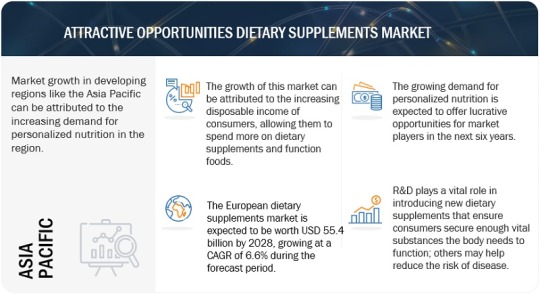
The global dietary supplements market is projected to grow from USD 167.5 billion in 2023 to USD 239.4 billion in 2028, at a CAGR of 7.4% during the forecast period.
#Dietary Supplements Market#Dietary Supplements#Dietary Supplements Market Size#Dietary Supplements Market Share#Dietary Supplements Market Growth#Dietary Supplements Market Trends#Dietary Supplements Market Forecast#Dietary Supplements Market Analysis#Dietary Supplements Market Research Report
0 notes
Text
ProNail Complex: A Look at the Nail Care Supplement.
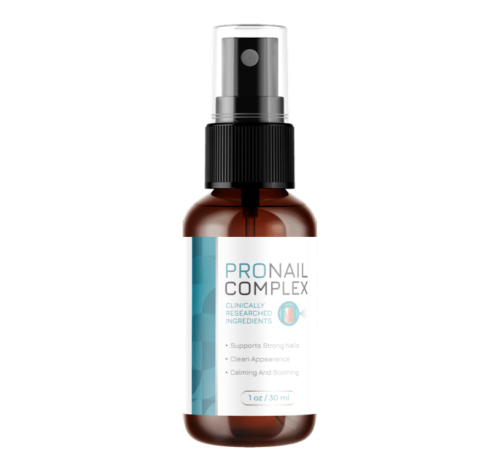
ProNail Complex is a dietary supplement marketed towards improving overall nail health. It promises to address common nail concerns like weakness, brittleness, and discoloration.
What Does ProNail Complex Offer?
The product highlights its ability to strengthen nails, promote healthy growth, and improve appearance. Additionally, some sources claim it can benefit foot health by targeting toenail fungus and keeping skin hydrated.
How Does ProNail Complex Work?
The information available about the formula is limited. It appears to be a liquid solution, possibly containing ingredients like flaxseed oil, aloe vera, and essential oils. However, there's a lack of transparency regarding the full list of ingredients and their dosages.
Effectiveness and Credibility
There's limited scientific evidence to support the claims made by ProNail Complex. While some user reviews boast positive experiences, others report minimal to no improvement. Additionally, the manufacturer's website and marketing materials lack transparency about ingredients and clinical trials.
Before You Buy ProNail Complex
If you're considering ProNail Complex, it's wise to consult a dermatologist or healthcare professional. They can advise on the best course of action for your specific nail concerns. Additionally, researching alternative nail care solutions and established topical treatments for fungal infections might be helpful.
3 notes
·
View notes
Text
Discussing Nutraceutical Payment Processing & Merchant Account & Regulations
Article by Jonathan Bomser | CEO | Accept-credit-cards-now.com
youtube
In the realm of high-risk payment processing, the nutraceutical industry presents a distinct set of challenges. As the demand for dietary supplements, vitamins, and herbal remedies continues to surge among health-conscious consumers, businesses in this field must grapple not only with delivering quality products but also with navigating intricate payment processing systems, securing specialized merchant accounts, and adhering to stringent regulations. This article delves into the multifaceted landscape of nutraceutical payment processing within the high-risk industry.
Understanding the High-Risk Nature of Nutraceuticals
To comprehend the nuances of payment processing and merchant accounts in the nutraceutical sector, it's crucial to grasp why this industry is categorized as high-risk. Several factors contribute to this classification:
Regulatory Complexity: Nutraceuticals are subject to stringent regulations to ensure safety and efficacy. Compliance with various agencies, including the FDA and FTC in the United States, adds complexity and risk.
Product Controversies: Occasionally, nutraceutical products face controversies related to misleading claims, adulteration, or adverse events. These controversies can lead to higher chargeback rates and legal challenges.
Market Volatility: The nutraceutical market is highly competitive and subject to market trends and consumer preferences, which can result in unpredictable sales patterns.
Fraud and Chargebacks: Due to the high-value nature of some nutraceutical products, these businesses may attract fraudsters, resulting in increased chargebacks and fraud-related risks.
Unique Payment Processing Challenges
Given these high-risk factors, nutraceutical companies encounter distinct payment processing challenges:
Difficulty Finding Processors: Many traditional payment processors are hesitant to work with nutraceutical businesses due to their high-risk profile. As a result, companies often need to seek specialized high-risk payment processors.
Higher Fees: High-risk merchant accounts typically come with higher fees and processing rates compared to low-risk industries.
Chargeback Management: Due to the potential for product dissatisfaction or disputes over claims, nutraceutical businesses must implement robust chargeback management strategies to mitigate financial losses.
The Role of Specialized Merchant Accounts
Nutraceutical businesses operating in the high-risk industry often turn to specialized high-risk merchant accounts. These accounts cater specifically to industries like nutraceuticals and offer several advantages:
Risk Mitigation: High-risk merchant accounts are equipped to handle the unique challenges of the nutraceutical sector, including fraud prevention and chargeback management.
Payment Gateway Compatibility: These accounts integrate seamlessly with payment gateways tailored to high-risk industries, ensuring smooth transaction processing.
Expertise: High-risk merchant account providers have experience in navigating the complexities of nutraceutical regulations and compliance.
Navigating Regulatory Frameworks
To maintain credibility and avoid legal repercussions, nutraceutical businesses must diligently adhere to regulatory standards, even in the high-risk category. Key regulatory aspects include:
Labeling and Claims: Ensuring accurate and compliant labeling, including health claims, is crucial to meeting regulatory standards.
Quality Control: Compliance with Good Manufacturing Practices (GMP) is essential for maintaining product quality and safety.
Adverse Event Reporting: Prompt reporting of adverse events linked to products is vital to safeguard consumer health and meet regulatory obligations.
In essence, the nutraceutical industry, as a part of the high-risk payment processing landscape, faces unique challenges in payment processing, merchant account acquisition, and regulatory compliance. Successfully navigating these complexities demands a strategic approach, unwavering commitment to quality, and partnerships with specialized high-risk payment processors. By effectively addressing these challenges, nutraceutical businesses can flourish in an industry driven by health-conscious consumers while upholding trust and integrity.
#high risk merchant account#high risk payment gateway#high risk payment processing#payment processing#merchant processing#accept credit cards#payment#youtube#Youtube
14 notes
·
View notes
Text
Sugar Defender
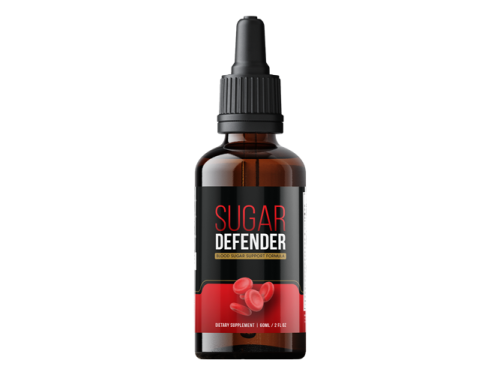
Sugar Defender: A Critical Look at the Blood Sugar Support Supplement
Sugar Defender positions itself as a natural solution for managing blood sugar levels. It promises to promote healthy blood sugar through a blend of herbal extracts and vitamins. But before incorporating it into your routine, let's delve deeper into the science, potential benefits, drawbacks, and what users have to say.
Ingredients and Benefits:
Sugar Defender boasts an array of natural ingredients, including chromium, berberine, African mango extract, and various bhvitamins. These ingredients are claimed to work in multiple ways:
Improve insulin sensitivity: Some ingredients like chromium may enhance how your body utilizes insulin, a hormone crucial for blood sugar regulation.
Support blood sugar control: Berberine, another key component, is often linked to improved blood sugar management in studies.
Reduce cravings: Certain ingredients may influence appetite hormones, potentially leading to reduced sugar cravings.
Scientific Backing and Potential Benefits:
While some Sugar Defender ingredients show promise in research, the quality of evidence varies. Here's a look at what science says about the key components:
Chromium: Studies suggest chromium may have modest benefits for blood sugar control, but more robust research is needed.
Berberine: This natural compound has gained significant interest for its potential to manage blood sugar. Studies indicate it may be comparable to certain diabetes medications in some cases.
African Mango Extract: Research on this ingredient for blood sugar management is limited and inconclusive.
It's important to note that most studies on these components involve participants with prediabetes or type 2 diabetes. Sugar Defender doesn't mention if it's intended for healthy individuals seeking blood sugar maintenance or those with diagnosed conditions.
Potential Drawbacks and User Reviews:
Sugar Defender's website primarily features positive testimonials highlighting improved energy and blood sugar control. However, independent reviews paint a more nuanced picture. Here are some reported drawbacks:
Limited independent research: While some ingredients have backing, a comprehensive study on the specific Sugar Defender formula is absent.
Potential side effects: Although marketed as natural, some ingredients may cause side effects like digestive upset in certain individuals.
Unrealistic claims: Claims about effortless weight loss or replacing doctor visits with this supplement raise red flags.
Safety Considerations:
Sugar Defender emphasizes its natural formula. However, natural doesn't equate to risk-free. It's crucial to consult a healthcare professional before starting Sugar Defender, especially if you have any underlying health conditions, take medications, or are pregnant/breastfeeding.
Alternatives and a Word of Caution:
Maintaining healthy blood sugar levels often involves a multi-pronged approach. Here are some alternatives to consider alongside consulting a doctor:
Diet: Prioritizing whole foods, fiber, and limiting processed carbohydrates can significantly impact blood sugar management.
Exercise: Regular physical activity enhances insulin sensitivity and blood sugar control.
Weight management: If weight loss is a goal, speak to a doctor about healthy strategies.
Remember, dietary supplements aren't a magic bullet for blood sugar control. They should complement, not replace, a healthy lifestyle and proper medical advice.
Conclusion:
Sugar Defender contains ingredients with some scientific backing for blood sugar management. However, the lack of robust research on the specific formula and potential side effects warrant caution. If you're considering Sugar Defender, discuss it with your doctor first. Remember, a focus on diet, exercise, and weight management, along with medical guidance, remains the cornerstone of maintaining healthy blood sugar levels.
Draft 2
Sugar Defender: A Critical Look at the Blood Sugar Support Supplement
Sugar Defender is a dietary supplement marketed towards people seeking to manage their blood sugar levels. It promises to achi... Draft 2
Sugar Defender: A Critical Look at the Blood Sugar Support Supplement
Sugar Defender is a dietary supplement marketed towards people seeking to manage their blood sugar levels. It promises to achieve this through a blend of natural ingredients. While some users report positive experiences, a closer look reveals a need for caution before incorporating Sugar Defender into your routine.
What Does Sugar Defender Claim to Do?
Sugar Defender's primary claim is to support healthy blood sugar levels. Promotional materials tout its ability to:
Improve blood sugar stability
Increase energy levels
Reduce cravings
Aid in weight management (indirectly through blood sugar control)
These claims are often backed by testimonials on the Sugar Defender website and affiliated pages. However, it's important to distinguish between personal anecdotes and scientific evidence.
Ingredients and Potential Benefits
Sugar Defender contains a mix of natural ingredients, including:
Chromium: This mineral can improve insulin sensitivity, potentially aiding blood sugar control.
Berberine: This plant extract has shown promise in some studies to lower blood sugar levels.
African Mango Seed: This extract may play a role in regulating blood sugar, but more research is needed.
Other Ingredients: These include extracts like Gymnema Sylvestre, Licorice root, and Banaba leaf, which have limited or inconclusive evidence regarding blood sugar management.
While some of the ingredients boast potential benefits, the quality of the research on Sugar Defender itself is a significant question mark. There are no independently conducted clinical trials published on the supplement's effectiveness.
Potential Drawbacks and Safety Concerns
There are several aspects of Sugar Defender to consider before using it:
Limited Transparency: The dosage of each ingredient is not readily available. This makes it difficult to assess if the included amounts are sufficient to deliver any potential benefits.
Potential Side Effects: Though marketed as natural, some ingredients may cause side effects, particularly at high doses. It's crucial to consult with a doctor before using Sugar Defender, especially if you have any pre-existing health conditions or take medications.
Unrealistic Expectations: Sugar Defender is not a magic bullet. Managing blood sugar requires a holistic approach, including diet, exercise, and sometimes medication prescribed by a doctor.
Alternatives to Consider
If you're looking to manage your blood sugar, several evidence-based approaches are available:
Diet: Focusing on whole, unprocessed foods, including fruits, vegetables, and lean proteins is key. Limiting sugary drinks and refined carbohydrates can significantly improve blood sugar control.
Exercise: Regular physical activity improves insulin sensitivity and helps regulate blood sugar levels.
Weight Management: If you're overweight or obese, losing weight can significantly improve blood sugar control.
Doctor-Prescribed Medication: In some cases, medication may be necessary to manage blood sugar. Consulting with your doctor is essential to determine the best course of action for your individual needs.
The Final Verdict
Sugar Defender's claims lack strong scientific backing, and the absence of transparent ingredient dosages raises concerns. While some ingredients have potential benefits, more research is needed to confirm their efficacy at the levels present in Sugar Defender.
If you're looking to manage your blood sugar, it's best to focus on diet, exercise, weight management, and consult with a doctor to explore all available options.
Draft 3
Sugar Defender: A Critical Look at the Blood Sugar Support Supplement
Sugar Defender positions itself as a natural solution for managing blood sugar levels. It promises to promote healthy blood su... Draft 3
Sugar Defender: A Critical Look at the Blood Sugar Support Supplement
Sugar Defender positions itself as a natural solution for managing blood sugar levels. It promises to promote healthy blood sugar through a blend of botanical extracts and vitamins. But before incorporating it into your routine, let's delve deeper into the science, potential benefits, drawbacks, and what users have to say.
Ingredients and Claimed Benefits:
Sugar Defender boasts an array of natural ingredients, including:
Chromium: This mineral enhances insulin sensitivity, potentially aiding blood sugar control.
Berberine: This plant extract possesses glucose-lowering properties and might improve insulin function.
African Mango Seed: This extract may play a role in regulating blood sugar and fat metabolism.
Gymnema Sylvestre: This herb is traditionally used in Ayurvedic medicine for blood sugar management.
These ingredients hold promise for blood sugar support, but the quality of the evidence varies. Chromium and Berberine have some scientific backing, while research on African Mango Seed and Gymnema Sylvestre is ongoing.
Sugar Defender also highlights benefits like increased energy, reduced cravings, and weight loss. While some ingredients might indirectly influence these aspects, the claims often lack strong scientific footing.
Potential Effectiveness and User Reviews:
Several user reviews on the Sugar Defender website and scattered forums portray positive experiences. People mention improved blood sugar control, increased energy, and better overall well-being. However, it's crucial to consider these reviews with a critical eye.
Positive testimonials can be subjective and lack control groups. Additionally, some platforms might be skewed to showcase favorable experiences.
Credibility and Potential Risks:
Sugar Defender's website presents limited information regarding clinical trials or independent research substantiating its claims. This lack of transparency can be a cause for concern.
Supplements, even those containing natural ingredients, can have side effects or interact with medications. Sugar Defender doesn't provide comprehensive information on potential risks or drug interactions. Consulting a healthcare professional before starting Sugar Defender, especially if you have pre-existing conditions or take medications, is essential.
Alternatives and a Word of Caution:
Maintaining healthy blood sugar levels is crucial for overall health. Alongside considering a supplement like Sugar Defender, remember these important strategies:
Diet: Focus on a balanced diet rich in fruits, vegetables, whole grains, and lean protein, while limiting processed foods and sugary drinks.
Exercise: Regular physical activity improves insulin sensitivity and blood sugar control.
Weight Management: If you're overweight or obese, losing even a moderate amount of weight can significantly affect your blood sugar levels.
Conclusion:
Sugar Defender presents a combination of potentially beneficial ingredients for blood sugar support. However, the lack of robust clinical data and potential risks warrant caution.
If you're considering Sugar Defender, discuss it with your doctor first. They can help you assess if it's appropriate and recommend alternative strategies or medications for managing your blood sugar. Remember, a holistic approach that combines dietary changes, exercise, and potential medication under medical supervision is likely the most effective course of action.refresh Regenerate drafts volume_up
Sugar Defender: A Critical Look at the Blood Sugar Support Supplement
Sugar Defender positions itself as a natural solution for managing blood sugar levels. It promises to promote healthy blood sugar through a blend of herbal extracts and vitamins. But before incorporating it into your routine, let's delve deeper into the science, potential benefits, drawbacks, and what users have to say.
Ingredients and Claimed Benefits:
Sugar Defender boasts an array of natural ingredients, including chromium, berberine, African mango extract, and various vitamins. These ingredients are claimed to work in multiple ways:
Improve insulin sensitivity: Some ingredients like chromium may enhance how your body utilizes insulin, a hormone crucial for blood sugar regulation.
Support blood sugar control: Berberine, another key component, is often linked to improved blood sugar management in studies.
Reduce cravings: Certain ingredients may influence appetite hormones, potentially leading to reduced sugar cravings.
Scientific Backing and Potential Benefits:
While some Sugar Defender ingredients show promise in research, the quality of evidence varies. Here's a look at what science says about the key components:
Chromium: Studies suggest chromium may have modest benefits for blood sugar control, but more robust research is needed.
Berberine: This natural compound has gained significant interest for its potential to manage blood sugar. Studies indicate it may be comparable to certain diabetes medications in some cases.
African Mango Extract: Research on this ingredient for blood sugar management is limited and inconclusive.
It's important to note that most studies on these components involve participants with prediabetes or type 2 diabetes. Sugar Defender doesn't mention if it's intended for healthy individuals seeking blood sugar maintenance or those with diagnosed conditions.
Potential Drawbacks and User Reviews:
Sugar Defender's website primarily features positive testimonials highlighting improved energy and blood sugar control. However, independent reviews paint a more nuanced picture. Here are some reported drawbacks:
Limited independent research: While some ingredients have backing, a comprehensive study on the specific Sugar Defender formula is absent.
Potential side effects: Although marketed as natural, some ingredients may cause side effects like digestive upset in certain individuals.
Unrealistic claims: Claims about effortless weight loss or replacing doctor visits with this supplement raise red flags.
Safety Considerations:
Sugar Defender emphasizes its natural formula. However, natural doesn't equate to risk-free. It's crucial to consult a healthcare professional before starting Sugar Defender, especially if you have any underlying health conditions, take medications, or are pregnant/breastfeeding.
Alternatives and a Word of Caution:
Maintaining healthy blood sugar levels often involves a multi-pronged approach. Here are some alternatives to consider alongside consulting a doctor:
Diet: Prioritizing whole foods, fiber, and limiting processed carbohydrates can significantly impact blood sugar management.
Exercise: Regular physical activity enhances insulin sensitivity and blood sugar control.
Weight management: If weight loss is a goal, speak to a doctor about healthy strategies.
Remember, dietary supplements aren't a magic bullet for blood sugar control. They should complement, not replace, a healthy lifestyle and proper medical advice.
2 notes
·
View notes
Text
Enhancing Athletic Performance: A Comprehensive Guide to Sports Nutrition
Eating a healthy balanced diet is an essential component of any exercise program. The quality of the food people eat can break their progress toward their fitness objectives. Sports nutrition is the secret to peak performance and better health, whether they're a professional athlete or just trying to keep in shape. In this blog, let's know about the proper nutrition which fuels performance.
People's awareness of the value of exercise is growing, and the sports industry is developing swiftly. Thus, it is estimated to drive the market expansion. In addition, according to a research report by Astute Analytica, the Global Sports Nutrition Market is likely to grow at a compound annual growth rate (CAGR) of 4.8% over the projection period from 2022 to 2030.
Sports nutrition's significance:
Athletes can prepare for and recover from workouts and contests with the help of adequate nutrition, which increases their total performance. Furthermore, maintaining body weight and increasing the workout effect requires an adequate intake of calories.

The focus of sports nutrition is on the particular dietary requirements for performance. Let's start by talking about which nutrients are crucial for athletes and whether certain supplements are required.
Fats:
Fat serves as the main energy source for low to moderate-intensity activity and fuels the muscles during endurance training. Additionally, it contributes to the absorption of fat-soluble vitamins, offers important fatty acids, safeguards vital organs, and improves satiety.
The recommended daily allowance for fat is between 20 and 35 percent of total calories. It is estimated that poly-unsaturated and mono fats make up about 15-20% and 5–10% of this total.
Seeds, nuts, avocados, fatty fish, and extra-virgin olive oil are a few examples of nutrient-dense dietary fat sources.
Protein:
Protein intake has been linked favorably to metabolic, bone, and weight control. Athletes' performance, lean body mass, recuperation, and strength have all been reported to increase with it. Furthermore, research indicates that consuming protein after exercise may maximize muscle recovery and improve strength.
According to research, active adults and athletes need 1.4–2.0 g of protein per kilogram of body weight per day to grow and maintain muscle mass. Higher protein consumption (>3.0 g/kg/d) may benefit body composition.
Red meat, poultry, dairy, fish, eggs, legumes, tofu, and fortified foods are a few examples of dietary sources of protein.
Food categories to eat:
Particular food groups should be a part of a person's diet when it comes to sports nutrition. It is possible to provide their body the energy it requires to function at its peak by consuming a range of nutrient-dense foods. The following foods are among the best to put in a sports nutrition plan:
Whole grains
Healthy fats
Lean proteins
Vegetables and fruits
The vitamins and minerals included in fruits and vegetables can assist the functioning of a person's body. Lean proteins and healthy fats can help them feel full and provide their body the resources it needs to stay healthy, while whole grains give their body slow-burning energy.
#SportsNutrition#AthleticPerformance#NutritionGuide#HealthyEating#FitnessFuel#PerformanceNutrition#NutritionTips#AthleteFuel#SportsDiet#PeakPerformance#FitnessNutrition#TrainingFuel#NutritionAdvice#SportsScience#FuelYourBody#SportsDietitian#EatForPerformance#NutritionGoals#NutritionForAthletes#SportsTraining
2 notes
·
View notes
Text
Why you should avoid kava and 9 other risky dietary supplements
One-third of Americans say they believe supplements have been tested by the Food and Drug Administration for safety, according to a 2022 nationally representative survey by Consumer Reports of 3,070 adults in the United States. But the FDA doesn’t approve or test the safety or effectiveness of any supplement before it enters the U.S. market.
After consulting with a panel of doctors and researchers, Consumer Reports says you should avoid these 10 risky supplements. In general, risk increases the larger the dosage and the longer the supplement is taken. Also beware of illegal or unapproved drug ingredients, such as tianeptine, methylsynephrine and phenibut.
Chaparral
Also called: creosote bush, greasewood, Larrea divaricata, Larrea tridentata, larreastat
Claimed benefits: weight loss; eases inflammation; treats colds, infections, rashes, cancers
Potential harms: kidney problems, liver damage
Coltsfoot
Also called: coughwort, Farfarae folium leaf, foalswort, Tussilago farfara
Claimed benefits: relieves cough, sore throat, laryngitis, bronchitis, asthma
Potential harms: liver damage, possible carcinogen
Comfrey
Also called: blackwort, bruisewort, slippery root, Symphytum officinale
Claimed benefits: relieves cough, heavy menstrual periods, stomach problems, chest pain; treats cancer
Potential harms: liver damage, cancer
Germander
Also called: Teucrium chamaedrys, Teucrium viscidum
Claimed benefits: weight loss; alleviates fever, arthritis, gout, stomach problems
Potential harms: liver damage, hepatitis
Greater celandine
Also called: celandine, Chelidonium majus
Claimed benefits: alleviates stomach ache
Potential harms: liver damage
Kava
Also called: ava pepper, kava kava, Piper methysticum
Claimed benefits: eases anxiety, helps sleep
Potential harms: liver damage, exacerbates Parkinson’s disease and depression, impairs driving
Lobelia
Also called: asthma weed, Lobelia inflata, vomit wort, wild tobacco
Claimed benefits: helps respiratory problems, smoking cessation
Potential harms: nausea, vomiting, diarrhea, tremors, rapid heartbeat, confusion, seizures, hypothermia, coma
Pennyroyal oil
Also called: Hedeoma pulegioides, Mentha pulegium
Claimed benefits: improves breathing problems, digestive disorders
Potential harms: liver and kidney failure, nerve damage, convulsions
Usnic acid
Also called: beard moss, tree moss, usnea
Claimed benefits: weight loss, pain relief
Potential harms: liver injury
Yohimbe
Also called: Johimbi, Pausinystalia yohimbe, yohimbine, Corynanthe johimbi
Claimed benefits: treats low libido and erectile dysfunction, depression, obesity
Potential harms: raises blood pressure; causes rapid heart rate, headaches, seizures, liver and kidney problems, heart problems, panic attacks
Source: Consumer Reports Inc.
Consumer Reports is an independent, nonprofit organization that works side by side with consumers to create a fairer, safer, and healthier world. CR does not endorse products or services, and does not accept advertising. Read more at ConsumerReports.org.
9 notes
·
View notes
Photo
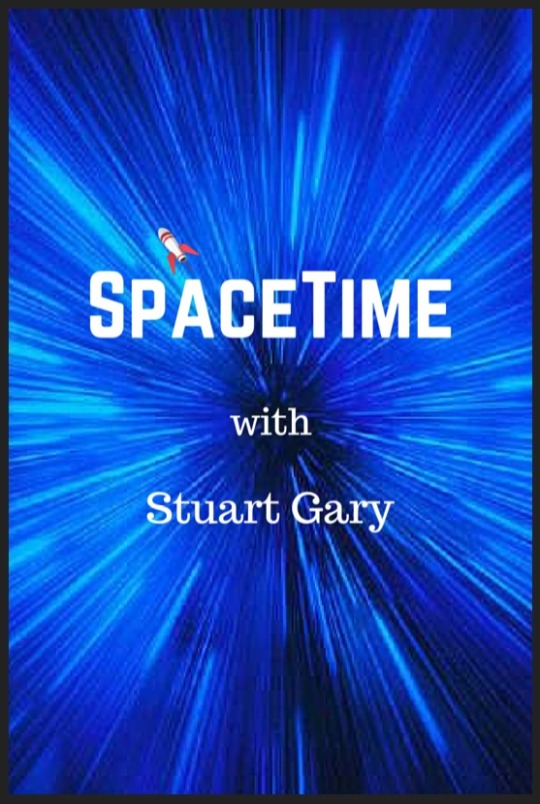







New SpaceTime out Wednesday: SpaceTime 20220629 Series 25 Episode 71 Dead star caught ripping up its planetary system Astronomers have been given a sobering glimpse of the ultimate fate of planet Earth as they watched a Sun like star at the end of its life rip its planetary system apart. New evidence on long standing water on ancient Mars A new study suggests that Mars may have retained a significant amount of water until far more recently than previously thought. Russian space debris threatens space station Crew aboard the International Space Station have been forced to take evasive action to avoid a piece of Russian space junk created by Moscow’s latest anti-satellite missile test. The Science Report Claims the Omicron variant appears to be less likely to cause long covid than Delta. New study claims multivitamins and dietary supplements are a waste of money. The origins of Copper revealed. Alex on Tech: new virtual reality training systems to help surgeons. SpaceTime covers the latest news in astronomy & space sciences. The show is available every Monday, Wednesday and Friday through Apple Podcasts (itunes), Stitcher, Google Podcast, Pocketcasts, SoundCloud, Bitez.com, YouTube, your favourite podcast download provider, and from www.spacetimewithstuartgary.com SpaceTime is also broadcast through the National Science Foundation on Science Zone Radio and on both i-heart Radio and Tune-In Radio. SpaceTime daily news blog: http://spacetimewithstuartgary.tumblr.com/ SpaceTime facebook: www.facebook.com/spacetimewithstuartgary SpaceTime Instagram @spacetimewithstuartgary SpaceTime twitter feed @stuartgary SpaceTime YouTube: https://www.youtube.com/c/SpaceTimewithStuartGary SpaceTime -- A brief history SpaceTime is Australia’s most respected astronomy and space science news program – averaging some three million downloads globally every year. The show reports on the latest stories and discoveries making news in astronomy, space flight, and science. SpaceTime features weekly interviews with leading Australian scientists about their research. The show began life in 1995 as ‘StarStuff’ on the Australian Broadcasting Corporation’s (ABC) NewsRadio network. Award winning investigative reporter Stuart Gary created the program during more than fifteen years as NewsRadio’s evening anchor and Science Editor. Gary’s always loved science. He studied astronomy at university and was invited to undertake a PHD in astrophysics, but instead focused on his career in journalism and radio broadcasting. He worked as an announcer and music DJ in commercial radio before becoming a journalist and eventually joining ABC News. He wrote, produced and hosted StarStuff from its inception, consistently achieving 9 per cent of the national Australian radio audience based on the ABC’s Neilsen ratings survey figures for the five major Australian metro markets: Sydney, Melbourne, Brisbane, Adelaide, and Perth. The StarStuff podcast was published on line by ABC Science -- achieving over 1.3 million downloads annually. However, after some 20 years, the show finally wrapped up in December 2015 following ABC funding cuts, and a redirection of available finances to increase sports and horse racing coverage. Rather than continue with the ABC, Gary resigned so that he could keep the show going independently. StarStuff was rebranded as “SpaceTime”, with the first episode being broadcast in February 2016. Over the years, SpaceTime has grown, tripling its former ABC audience numbers and expanding to include new segments such as the Science Report -- which provides a wrap of general science news, weekly skeptical science features, special reports looking at the latest computer and technology news, and Skywatch – which provides a monthly guide to the night skies. The show is now published three times a week and is also available from the United States National Science Foundation on Science Zone Radio, and through both i-heart Radio and Tune-In Radio.
#space#science#Astronomy#physics#news#nasa#esa#ASA#starstuff#abcstarstuff#abc starstuff#spacetime#spacetimewithstuartgary#universe#galaxy#star#Black Hole#planet#moon#rocket#astronaut#telescope#cosmos
20 notes
·
View notes